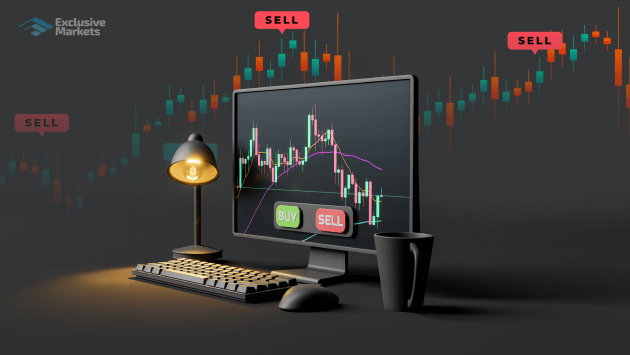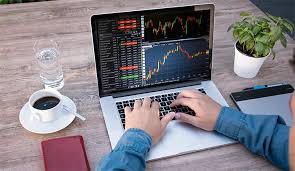
Mastering Forex Trading: Your Comprehensive Course Guide
Are you interested in stepping into the world of forex trading? Investing in the currency market can be lucrative, but it requires a strong foundation of knowledge, strategy, and a solid understanding of risk management. In this article, we will delve into essential components of a forex trading course, including market basics, technical and fundamental analysis, risk management techniques, and the importance of selecting an authentic broker. For further resources, you may refer to forex trading course Online Trading Brokers that provide insights into various trading platforms.
Understanding the Forex Market
The forex market involves trading currencies in pairs, such as EUR/USD or GBP/JPY. It is the largest financial market globally, with a daily trading volume exceeding $6 trillion. Before you start trading, it’s vital to understand key concepts such as pips, spreads, and lot sizes.
A pip is the smallest price move that a given exchange rate can make based on market convention. The spread refers to the difference between the buy (ask) and sell (bid) prices of a currency pair. Lot sizes determine how much of a currency pair you are buying or selling and come in three types: standard, mini, and micro.
Familiarizing yourself with these terms is crucial for your success, as they are the building blocks of forex trading.
Choosing the Right Forex Trading Course
Not all forex trading courses are created equal. When searching for a course, consider the following key elements:
- Instructor Credentials: Ensure that the instructor has a significant background in forex trading and a proven track record of success.
- Course Content: The course should cover both fundamental and technical analysis, risk management strategies, and trading psychology.
- Live Trading Sessions: A reputable course will often include live trading sessions to provide real-time experience.
- Community Access: Look for courses that offer access to a community of traders where you can ask questions, share experiences, and learn collaboratively.
These components will help ensure you receive a well-rounded education in forex trading.

Fundamental vs. Technical Analysis
In forex trading, two primary forms of analysis can help you make informed decisions: fundamental and technical analysis.
Fundamental Analysis: This type of analysis focuses on economic indicators, news announcements, and geopolitical events that can affect currency values. Key indicators include GDP growth rates, employment statistics, and central bank interest rate decisions. Understanding these factors will give you insight into currency trends.
Technical Analysis: This approach involves analyzing historical price data to identify patterns and trends. Traders use various tools such as moving averages, support and resistance levels, and chart patterns to determine entry and exit points. Mastering technical analysis requires practice and familiarity with various indicators.
Both types of analysis are essential for successful trading, and many successful traders employ a combination of both approaches.
Risk Management Strategies
Risk management is a cornerstone of a successful trading strategy. The forex market can be unpredictable, and having a plan to protect your capital is vital. Here are some key risk management strategies to incorporate into your trading:
- Set a Stop-Loss Order: Place a stop-loss order to automatically close a position when it reaches a certain loss level. This can prevent significant capital losses.
- Position Sizing: Determine the size of your trades based on your account balance and risk tolerance. A common rule of thumb is to risk no more than 1-2% of your account on a single trade.
- Diversification: Avoid putting all your capital into one currency pair. Instead, diversify your trades across different pairs to mitigate risk.
Implementing these strategies will help you manage your risk effectively while trading and preserve your capital for long-term success.
Selecting a Reputable Forex Broker

A crucial step in your trading journey is selecting the right forex broker. The broker you choose can significantly affect your trading experience, so consider the following factors:
- Regulation: Ensure that the broker is regulated by a reputable authority, such as the Financial Conduct Authority (FCA) or the Commodity Futures Trading Commission (CFTC).
- Trading Platform: Evaluate the trading platform offered by the broker. It should be user-friendly, reliable, and equipped with essential trading tools and features.
- Spreads and Commissions: Compare the spreads and commission rates across various brokers to find a cost-effective option.
- Customer Support: Good customer service is vital for resolving any issues or inquiries. Look for brokers that offer multiple channels of support, such as phone, chat, and email.
Take your time to research and select a broker that aligns with your trading goals and style.
Developing a Trading Plan
A well-defined trading plan is essential for maintaining discipline and consistency in your trading. Your trading plan should outline:
- Your Goals: Set specific, measurable, achievable, relevant, and time-bound (SMART) goals for your trading journey.
- Entry and Exit Strategies: Clearly define your criteria for entering and exiting trades based on your analysis.
- Risk Management Rules: Include your risk tolerance, stop-loss levels, and position sizing guidelines in your plan.
- Review System: Decide how often you will review your trades and overall performance to make necessary adjustments.
Creating and adhering to a trading plan will provide a framework for your trading activities and help you avoid emotional decisions.
Conclusion
Embarking on a forex trading journey is both exciting and challenging. A comprehensive forex trading course can equip you with essential knowledge and skills to navigate the currency markets confidently. From understanding market fundamentals to implementing risk management strategies and selecting a reputable broker, mastering forex trading requires dedication and practice.
Remember to continue learning, practice on demo accounts, and connect with other traders. As you progress in your trading journey, you will find that your knowledge, skills, and confidence will grow, leading to greater success in the forex market.